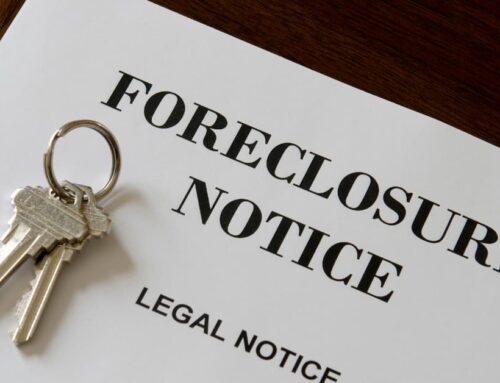In the realm of homeownership, unexpected financial challenges can emerge, potentially jeopardizing mortgage payments. In such circumstances, grasping the concept of “what is a loan modification and how does it work” becomes crucial. A loan modification serves as a lifeline for homeowners confronting financial hardships, providing them with the chance to adjust the terms of their current mortgage to better suit their current financial situation.
At Kelly Legal Group, we recognize the significance of this process in providing relief to homeowners grappling with economic uncertainties. With an emphasis on results, expertise, and transparency, our team of business and real estate law experts is here to guide you through the intricate landscape of mortgage loan modifications.
This comprehensive guide delves into the intricacies of mortgage loan modifications, empowering you with the knowledge needed to navigate this essential process. From the fundamental concept of loan modifications to the key players involved and the various programs available, we shed light on every aspect to ensure you make informed decisions about your financial future. Whether you’re seeking to understand eligibility criteria, explore different modification options, or protect your homeownership rights, our guide is designed to provide the insights you need for a successful mortgage loan modification journey.
👉Also read: Struggling With Mortgage Loan Modification: Get Professional Guidance from Our Legal Experts
Understanding the Mortgage Modification Process
Mortgage modification stands as a lifeline for homeowners grappling with financial challenges. These modifications involve altering the terms of an existing mortgage to alleviate payment burdens. Understanding this process is crucial, as it empowers borrowers to proactively address financial difficulties and secure their homes.
Key Players: Mortgage Lender and Loan Servicer
Central to the mortgage modification process are two key players: the mortgage lender and the loan servicer. The lender holds the mortgage and possesses the authority to approve modification requests. The loan servicer manages the loan on behalf of the lender, interacting with borrowers and facilitating modifications.
Within the realm of mortgage modification, various programs cater to diverse borrower needs. These programs can be introduced by government entities, lenders, or even through private arrangements. Familiarizing oneself with these options is essential, as each program offers specific benefits tailored to varying financial situations.
Assessing Eligibility for Loan Modification

Before pursuing a mortgage modification, assessing financial hardship is a pivotal step. Financial hardship may arise due to factors such as unemployment, medical emergencies, or unexpected expenses. Understanding the impact of these challenges on your ability to make loan payments is crucial in gauging your eligibility for a modification.
Evaluating the Criteria for Loan Modification Approval
Loan modification approval hinges on meeting specific criteria set by lenders or governing bodies. These criteria often include demonstrating genuine financial hardship, providing documentation of income and expenses, and illustrating a commitment to sustained mortgage payments. Meeting these requirements is vital for a successful application, as they demonstrate your commitment to resolving financial challenges and maintaining homeownership.
Exploring Loan Modification Options
Before embarking on the path of loan modification, it’s crucial to understand the diverse options available to address your specific financial needs. Here, we’ll delve into various avenues, each tailored to different circumstances, to help you make an informed decision that best aligns with your goals.
Traditional Mortgage Loan Modification
A traditional mortgage loan modification entails negotiating with your lender to alter the terms of your existing mortgage. This could involve extending the loan term, lowering the interest rate, or reducing the principal amount owed. This approach offers flexibility in addressing financial hardships while maintaining homeownership.
FHA Loan Modification
The Federal Housing Administration (FHA) offers loan modification programs designed to assist borrowers with FHA-insured mortgages. These programs aim to create more affordable payments by adjusting interest rates, extending loan terms, or even deferring portions of the principal balance. FHA loan modifications can provide substantial relief for those facing financial difficulties.
VA Loan Modification: Assistance for Veterans
The Department of Veterans Affairs (VA) offers loan modification options to veterans who hold VA-backed loans. VA loan modifications can involve interest rate reductions, extended loan terms, or forbearance on payments. This initiative underscores the commitment to supporting veterans and helping them sustain homeownership.
USDA Loan Modification for Rural Homeowners
The U.S. Department of Agriculture (USDA) provides loan modification programs for rural homeowners with USDA-backed mortgages. These programs can encompass interest rate reductions, term extensions, or principal forbearance. Designed to alleviate financial burdens for rural residents, USDA loan modifications offer valuable support in challenging times.
The Loan Modification Application Process
A crucial step in the loan modification process is gathering the required documentation. This includes recent pay stubs, bank statements, tax returns, and other financial records that provide a comprehensive view of your financial situation.
Accompanying your loan modification application should be a compelling hardship letter that outlines the challenges you’re facing and why a modification is necessary. This letter can provide context to your financial circumstances and can significantly impact the lender’s decision.
Once all documentation is in order, the next step is submitting the loan modification application to your current lender or loan servicer. This application will undergo an evaluation to determine your eligibility for a modification.
Key Factors Influencing Loan Modifications
When considering a loan modification, it’s essential to assess the current loan terms and interest rates. By analyzing these factors, you can determine how adjustments may impact your overall financial situation.
While a loan modification can provide much-needed relief, it’s important to understand its potential impact on your credit score. Though a modification itself may not directly affect your score, any missed monthly mortgage payment leading up to the modification could have consequences.
The existing loan and principal balance also play a role in loan modifications. The lender’s willingness to modify the loan can be influenced by factors such as the remaining balance and the equity in the property.
The Flex Modification Program: A Viable Option
The Flex Modification program is a government initiative designed to offer eligible homeowners a viable path to mortgage relief. This program aims to help borrowers avoid foreclosure by modifying their existing mortgage terms.
Under the Flex Modification program, mortgage lenders and servicers can adjust various aspects of the loan to achieve an affordable monthly payment. This can include reducing the interest rate, extending the loan term, or even forgiving a portion of the principal.
The Trial Period and Completing Trial Payments
A crucial phase of the loan modification process is the trial period. This period typically involves making reduced payments to demonstrate your ability to manage the modified terms. Successful completion of the trial period is often a prerequisite for permanent modification.
During the trial period, it’s imperative to make all payments on time and in the specified amount. Successfully completing this phase demonstrates your commitment to the modified terms and increases the likelihood of permanent modification.
Loan Modification Approval and Its Impact
Upon successful completion of the trial period, you can expect your loan to transition into permanent modification. This modification will lead to adjustments in your monthly mortgage payments, making them more manageable.
While loan modifications are intended to alleviate financial burdens, some modifications may result in slightly increased monthly payments. However, these adjustments are often minor compared to the relief they provide. Additionally, the long-term benefits of maintaining homeownership and avoiding foreclosure far outweigh these incremental changes.
Avoiding Foreclosure with Loan Modification
One of the primary advantages of loan modifications is their potential to prevent foreclosure. By modifying the terms of the mortgage to better align with the borrower’s financial situation, homeowners can avoid the devastating consequences of foreclosure.
Loan modifications can also impact the outstanding principal balance. In some cases, lenders may be willing to forgive a portion of the principal to create a more sustainable mortgage structure.
👉Also read: When Should I Hire a Real Estate Lawyer in Texas?
Unlock Your Mortgage Modification Success with Kelly Legal Group
Navigating the complex terrain of mortgage modification requires expertise and a deep understanding of real estate and business law. At Kelly Legal Group, we are committed to providing borrowers with the knowledge and guidance needed to make informed decisions about their mortgages. Our team of experienced legal professionals is here to support you throughout the process, ensuring a positive outcome for your mortgage loan modification. With our expertise, you can confidently navigate the intricate journey of securing a modified mortgage that aligns with your financial goals.
If you’re contemplating a loan modification, don’t go it alone. Reach out to our team at (512) 505-0053 to arrange a consultation and start your journey toward a more financially secure future.






